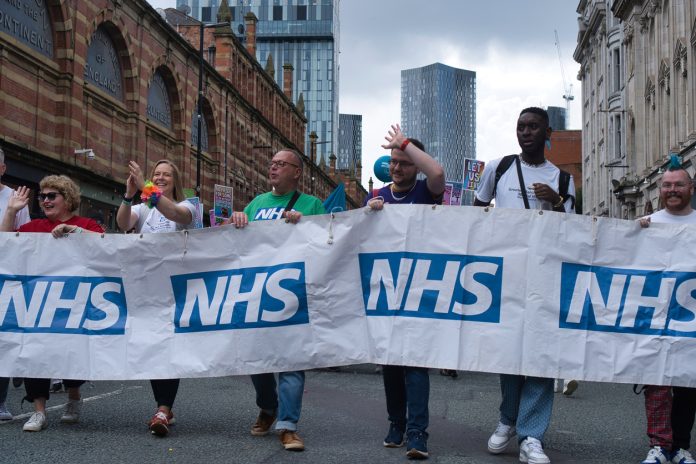The new Health and Social Care Secretary, Wes Streeting, is set to enter formal negotiations with junior doctors to end strikes and resolve the prolonged dispute over pay and conditions that have plagued the NHS for the past 20 months
The announcement follows a pivotal meeting on Thursday between Streeting and representatives of the British Medical Association (BMA), marking the Labour government’s first major intervention in the ongoing row since their recent election victory.
Some background on the dispute
Junior doctors in England have been engaged in a series of strikes since December 2022, demanding pay restoration to 2008 levels, which would equate to a 35% pay rise.
The industrial action, which has included walkouts by various healthcare professionals, has led to the postponement of approximately 1.5 million appointments, further straining an NHS already grappling with a record-high backlog exacerbated by the COVID-19 pandemic. The strikes have also cost the NHS an estimated £3 billion.
The strikes have also cost the NHS an estimated £3 billion.
Health and Social Care Secretary, Wes Streeting’s statement
After a second constructive meeting with the BMA junior doctors committee, Streeting expressed optimism about the negotiations. “After a second constructive meeting, I am pleased to announce that my department will enter formal negotiations with the BMA junior doctors’ committee on Tuesday. This is a crucial step forward as we work to end this dispute and change the way junior doctors are treated in the NHS,” he said.
He acknowledged the “terrible economic circumstances” inherited by the new Labour government but remained encouraged by the early meetings, suggesting that “there is a deal to be done.”
Challenges ahead
One of the significant barriers to progress under the previous government was a pervasive lack of trust between the BMA and former health secretaries. The BMA felt that former health secretaries Steve Barclay and Victoria Atkins lacked genuine intent and full backing from Downing Street to resolve the dispute.
In contrast, Labour had campaigned on a promise to address these strikes by engaging directly with the BMA, although they had been vague about the specifics of any potential pay rise.
British Medical Association’s (BMA) Response
The BMA junior doctors’ committee co-chairs, Dr. Robert Laurenson and Dr. Vivek Trivedi, confirmed the start of formal negotiations on Tuesday, 23 July, with an expectation to conclude by their executive meeting on 16 August.
“We have just had our second meeting with the secretary of state for health and social care. We are pleased to announce that formal negotiations will begin on Tuesday, 23 July,” they said in a joint statement.
The NHS Confederation’s response
Matthew Taylor, chief executive of the NHS Confederation, responded positively to the news of formal negotiations. “The government and BMA agreeing to get round the table to begin formal negotiations is a very welcome development. This is a vital first step towards resolving the long-running industrial action which has caused so much disruption for staff and patients,” he said.
He highlighted the severe impact the strikes have had on the NHS, noting that “around 1.5 million operations and appointments [were] cancelled at an estimated cost of £3 billion.” Taylor emphasized the desire of NHS leaders and their teams to focus on “improving performance and tackling care backlogs, not rescheduling cancelled appointments and plugging staffing gaps.”
Taylor also expressed hope for a lasting resolution: “We hope these negotiations can find a long-lasting solution to the genuine grievances many junior doctors have about their pay, conditions, and training.”
Implications for the NHS
Resolving the strikes is critical for the new government, which has pledged to create 40,000 new weekly hospital appointments to reduce waiting lists. Achieving this goal will be challenging if industrial action continues.
The stakes are high as the government seeks to restore stability to the NHS, ensure better working conditions for junior doctors, and deliver on its promises to the electorate.











